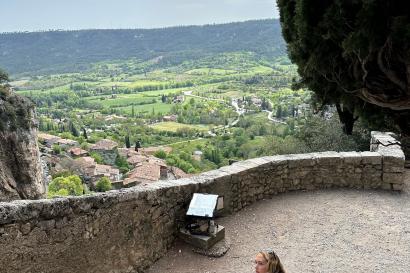
Language can tell you a great deal about a person, a culture, and even entire civilizations. In today’s evermore connected and globalized society, more and more people are being raised bilingual by their parents or learning languages in schools and universities. However, unless you’re a natural with the predominant language of the country in which you’re studying, odds are at some point you will run smack into a language barrier.
Not literally though; you won’t pull an Amelia Bedelia and actually run into a barrier with another language on it (still watch where you’re walking). Instead, there is an obvious communication barrier that comes along with not knowing another language well. Think about a time when a tourist or someone with little English-speaking knowledge tried to communicate with you. Maybe they got out a few broken phrases, some interesting mime action, and eventually you got the gist of what was going on. That’s exactly how it sounds trying to speak other languages…….badly.
I can’t throw stones from my glass house though, I only know enough here to not die and ask shops if they have my shoe size. I wasn’t a language major coming here and the extent of my French was half a semester of instruction in 8th grade. While I have found success with the basics of other languages, I had no idea what to expect with French. Luckily for me, the French language has a lot of cognates. A lot of the words we learn just sound like English words spoken with French accent. This makes things somewhat easier, but on the whole the French language isn’t always the most simple to understand. With that being said, my most sincere sympathies to anyone learning a Scandanavian language or a language with an alphabet you’re unfamiliar with, you people are the real heroes.
Oh and, amateur tip: learn how to ask if someone can repeat themselves, but sloooowwwlyyyy. It has paid off for me on a few occasions already.
That communication barrier can be a fun way to force you to learn the language, a trial by fire if you fancy. But, there are times when the linguistic blockade that exists between you and a language you don’t know can be absolutely maddening. There is just something so inexplicably frustrating about knowing what you want to say, knowing the appropriate language to say it in, and having absolutely no clue how to say it. On the plus side, after all of these broken-speech half-communicative conversations you’ll be an absolute juggernaut on game night when it comes time to play charades.
There are some ways around this language barrier though (or over it if you prefer). The best way to become proficient at another language is to practice it as much as possible. If you can, take a slot out of your schedule and few hours of your week and dedicate them to a language class. It will pay dividends once your charades skills and patience begin to wear thin and you just want to have a conversation with someone. I’m taking a beginner French class here and without it, I wouldn’t even be able to ask about shoe sizes. If you don’t have the time for a class, get a tutor, a phrasebook, even an app will get you further along than you were before. Just don’t be “that American” that expects everyone to speak English because ‘MURICA.
Look, the language barrier can be frustrating. It can lead to getting the wrong lunch, ending up at the wrong bus stop, or even accidentally insulting someone when you were just trying to ask where the bathroom was. Full confession, there are even some situations or conversations I avoid because I don’t want to deal with the awkwardness of misunderstanding. But, it’s important to remember that you miss 100% of the shots you don’t take (shout-out Michael Scott), and that you can’t stop living life because something is a little uncomfortable. You don’t want to shy away from a location because you’re worried about the language barrier, but you also don’t want to go abroad thinking you know everything about communicating there.
Part of this whole deal is that I am honest with everyone reading this (shoutout to you same four loyal ones), whether it’s great or no-so-great. Communicating in another language is an enjoyable, frustrating, fascinating, exhausting, and often rewarding part of studying abroad. Do your best to assimilate, adapt, and hope the locals cut you some slack if (when) you do butcher some pronunciation and grammar.
The bottom line is this: language is hard, okay. Sometimes English isn’t even my best language, and it really should be. But like they say, “no pressure, no diamonds”, and nothing worth doing is ever all that easy.
Until next time,
Connor

Connor Hickle
<p>I am 21 years old, a rising senior at Wofford College, and I am pursuing a B.A. in Finance. My interests include cars, motorcycles (pretty much anything with wheels), and sports. I pass my free time by hanging out with family and friends, going to the movies, working out, and watching Netflix. A weird fact about me is that I enjoy philosophical discussions.</p>







